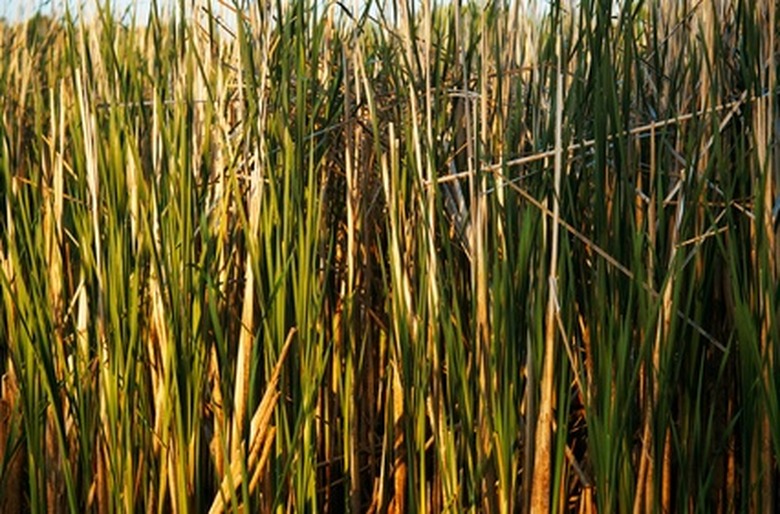How To Kill Wild Outdoor Cane Plants
Wild outdoor cane, also known as giant reed, is fast growing, fast spreading and quite difficult to eradicate. It is almost impossible to kill off a population by merely digging it up, since one remaining rhizome can start the whole problem again. Defeating giant reed requires the use of multiple tactics by a patient and vigilant gardener.
Step 1
Cut the stand of giant reed down to near ground level with a scythe. Clear away and dispose of the reeds or put them in a bin to dry for a two to three weeks before composting them.
Step 2
Boil a large pot of water. Put on long pants and gloves.
- Wild outdoor cane, also known as giant reed, is fast growing, fast spreading and quite difficult to eradicate.
- It is almost impossible to kill off a population by merely digging it up, since one remaining rhizome can start the whole problem again.
Step 3
Standing uphill of the target area, soak with boiling water the ground on which the cane plants were growing. Cover all the ground immediately under the cane plants, being careful not to miss a spot. Apply a second dose of boiling water if necessary.
Step 4
Check on the cane stand every day for the next two weeks for new shoots. Douse any new shoots with boiling water.
Kill Wild Outdoor Cane Plants
Wild cane, more widely known as common or giant reed, is an invasive grass with a remarkable ability to establish and spread quickly. Even if the cane is burned to the ground or pulled up stalk by stalk, there is still the potential for emerging canes the following year. Mow down the stand of wild cane in early spring, using a scythe or bush hog. Wait until the cane just begins to flower, then implement a burn program. Douse the edges of the stand with a flammable substance to get the fire started. Follow the manufacturer's instructions regarding the number of applications and amount to apply.
- Standing uphill of the target area, soak with boiling water the ground on which the cane plants were growing.
Things Needed
- Scythe
- Pot
- Shovel
Tip
Treat cane plants with a weed killer after scything them. Boiling water has the advantage of being non-toxic and very fast acting, whereas weed killers can take repeated treatments. Giant reeds are quite flammable and can be killed by fire.
